Voting Methods Central covers the study, promotion and adoption of voting methods reform worldwide. Increasingly important systems of voting like instant-runoff voting, approval voting, top-two voting and proportional representation will be covered here. DC authors focused on voting methods include Aaron Hamlin, augustin, Michael Ossipoff and Richard Fobes.
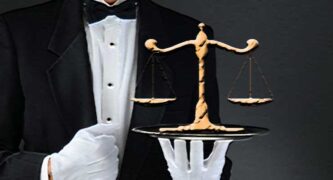 Can The Courts Police Gerrymanders? (5/11/2023) - A North Carolina court ruled that courts don’t have the ability to determine if a…
Can The Courts Police Gerrymanders? (5/11/2023) - A North Carolina court ruled that courts don’t have the ability to determine if a… 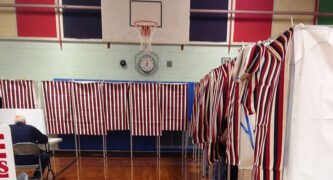 The Next House Majority Could Be Decided In The Courts (3/15/2023) - Despite state court warnings, Republicans plan to move forward with gerrymandering, despite the possibility of…
The Next House Majority Could Be Decided In The Courts (3/15/2023) - Despite state court warnings, Republicans plan to move forward with gerrymandering, despite the possibility of… 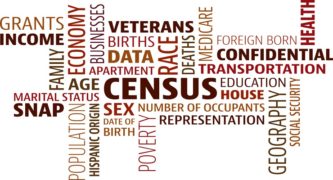 Momentum Gathers To Improve 2030 Census (1/20/2023) - The Census Bureau has begun to prepare for next decennial count. As part of preparations,…
Momentum Gathers To Improve 2030 Census (1/20/2023) - The Census Bureau has begun to prepare for next decennial count. As part of preparations,… 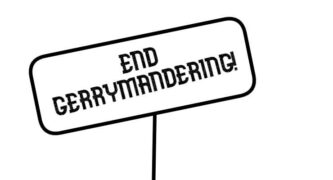 Voter ID, Partisan Gerrymandering Struck Down In NC Rulings (12/22/2022) - The North Carolina Supreme Court issued two important rulings in voting rights cases Friday, on…
Voter ID, Partisan Gerrymandering Struck Down In NC Rulings (12/22/2022) - The North Carolina Supreme Court issued two important rulings in voting rights cases Friday, on…  Supreme Court Majority Questions Massive Shift Of Election Authority (12/14/2022) - A majority of Supreme Court justices Wednesday seemed reluctant to find that state legislators may…
Supreme Court Majority Questions Massive Shift Of Election Authority (12/14/2022) - A majority of Supreme Court justices Wednesday seemed reluctant to find that state legislators may… 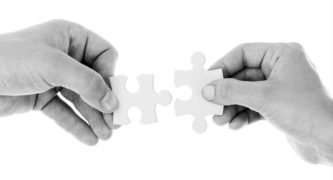 How Redistricting Shaped The Midterms (12/2/2022) - Both parties entered the latest redistricting cycle seeking to press their advantages where they could…
How Redistricting Shaped The Midterms (12/2/2022) - Both parties entered the latest redistricting cycle seeking to press their advantages where they could…  Let The Kids Rule School Boards (11/17/2023) - Remember that grown-ups like to say that you kids need to learn civics, even though…
Let The Kids Rule School Boards (11/17/2023) - Remember that grown-ups like to say that you kids need to learn civics, even though… 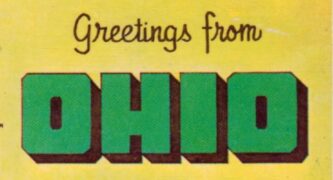 Ohio Abortion Ban Relights Battle Over Direct Democracy (6/8/2023) - Today, voters in Ohio will go to the polls to deliberate on a change to…
Ohio Abortion Ban Relights Battle Over Direct Democracy (6/8/2023) - Today, voters in Ohio will go to the polls to deliberate on a change to… 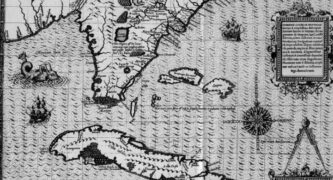 Did Pirates Pioneer Democracy? (4/13/2023) - Fencing booty is the most underappreciated problem of historical pirate logistics. Myths and stories about…
Did Pirates Pioneer Democracy? (4/13/2023) - Fencing booty is the most underappreciated problem of historical pirate logistics. Myths and stories about… 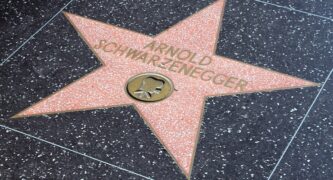 In California Politics, You Must Find Your Inner Terminator (3/23/2023) - To protect ballot initiatives from continuous opposition, one needs robust endurance and tenacity akin to…
In California Politics, You Must Find Your Inner Terminator (3/23/2023) - To protect ballot initiatives from continuous opposition, one needs robust endurance and tenacity akin to… 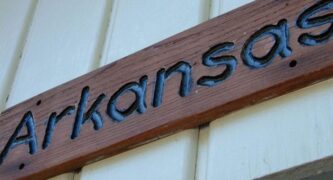 An Attack on Arkansas Public Referendums (3/21/2023) - Republican politicians in Arkansas were seething three years ago over progressive initiatives that legalized medical…
An Attack on Arkansas Public Referendums (3/21/2023) - Republican politicians in Arkansas were seething three years ago over progressive initiatives that legalized medical… 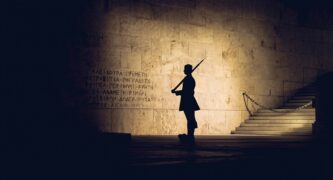 What Will It Take To Make Democracy More Representative? (2/8/2023) - Multiple dimensions of identity simultaneously shape pathways to candidacy and representation for all groups seeking…
What Will It Take To Make Democracy More Representative? (2/8/2023) - Multiple dimensions of identity simultaneously shape pathways to candidacy and representation for all groups seeking… 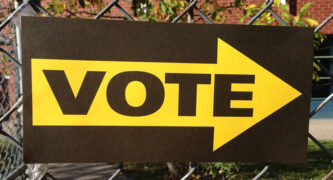 Oregon Ranked Voting: On The Ballot (10/23/2024) - Some objectors complain that the state legislature didn’t include itself in the proposed voting-system change.
Oregon Ranked Voting: On The Ballot (10/23/2024) - Some objectors complain that the state legislature didn’t include itself in the proposed voting-system change. 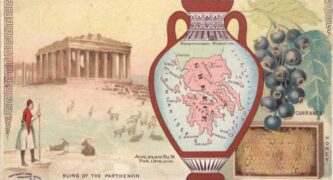 On a Rocky Hill in Athens, a ‘Democratic Odyssey’ Begins (10/31/2023) - Could a European People’s Assembly—Politician-Free and Chosen by Lottery—Become a Permanent Branch of Government?
On a Rocky Hill in Athens, a ‘Democratic Odyssey’ Begins (10/31/2023) - Could a European People’s Assembly—Politician-Free and Chosen by Lottery—Become a Permanent Branch of Government? 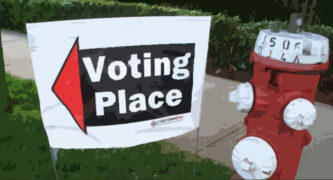 Kern puts on mock election to seek efficiencies (6/17/2023) - Kern county's mock election features two fictional candidates, testing staff readiness for future real elections…
Kern puts on mock election to seek efficiencies (6/17/2023) - Kern county's mock election features two fictional candidates, testing staff readiness for future real elections… 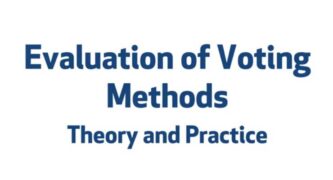 Ranked Voting’s Rare But Real Mathematical Flaws (5/7/2023) - RCV has some theoretical and historically observed flaws, and should be assessed for pros and…
Ranked Voting’s Rare But Real Mathematical Flaws (5/7/2023) - RCV has some theoretical and historically observed flaws, and should be assessed for pros and… 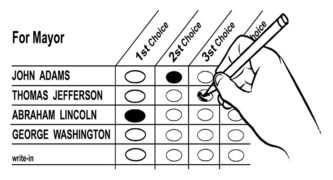 Battle Over Ranked Voting Rages Nationwide (5/2/2023) - Advocates of ranked-choice voting say it helps women and people of color candidates participate in…
Battle Over Ranked Voting Rages Nationwide (5/2/2023) - Advocates of ranked-choice voting say it helps women and people of color candidates participate in… 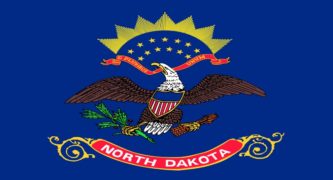 North Dakota Legislature Bans Ranked And Approval Voting (4/5/2023) - North Dakota has passed a bill banning approval voting, which allows voters to choose multiple…
North Dakota Legislature Bans Ranked And Approval Voting (4/5/2023) - North Dakota has passed a bill banning approval voting, which allows voters to choose multiple… What Voting Methods We Should Use
Voting systems, also known as election methods, have a revolutionary potential that is not grasped by the general public even though there is an entire universe of research on this topic.
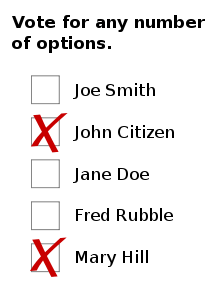
When we were just getting started as a website, Democracy Chronicles founder Adrian Tawfik conducted an exclusive interview series with an international group of election method proponents including prominent signers of the Declaration of Election-Method Reform Advocates. It is a great example of the diversity of the people involved. The best place to start off is the Democracy Chronicles introduction and then take a look at each of these interviews:
- Richard Fobes – Election Method Reformer Speaks With DC
- Aaron Hamlin – Interview With President of Center for Election Science
- augustin – Writer Discusses Election Reform and New Website
- Michael Allen – Election Method Reformer Seeks Radical Changes
- Jameson Quinn – Election Expert Discusses Reform in US and Guatemala
- Michael Ossipoff – Democracy Chronicles Author Discusses Approval Voting
- Robert Bristow-Johnson – Expert Demands Reducing Money in Elections
Also see the DC Interview With Creator of Wooden Models of Voting Methods with artist Peter A. Taylor.
 Twitter Changes Boost Autocrats’ Digital Disinformation (4/27/2023) - Recent changes at Twitter have enabled authoritarian governments in Russia, China, and Iran to amplify…
Twitter Changes Boost Autocrats’ Digital Disinformation (4/27/2023) - Recent changes at Twitter have enabled authoritarian governments in Russia, China, and Iran to amplify… 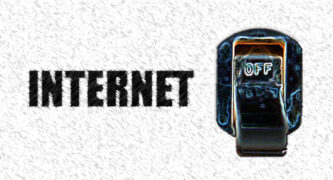 Defending Democracy Against A Rapidly Evolving Internet (3/16/2023) - 2022 saw significant online ecosystem changes that have the potential to further erode global democratic…
Defending Democracy Against A Rapidly Evolving Internet (3/16/2023) - 2022 saw significant online ecosystem changes that have the potential to further erode global democratic… 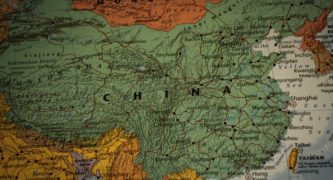 How Online Censorship Affects Internet Freedom in China (1/28/2023) - The sheer perseverance and linguistic ingenuity of activists and dissidents are impressive, but the Chinese…
How Online Censorship Affects Internet Freedom in China (1/28/2023) - The sheer perseverance and linguistic ingenuity of activists and dissidents are impressive, but the Chinese… 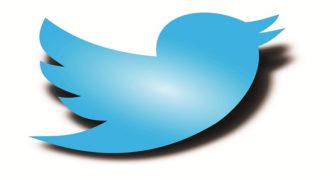 Twitter Reverses Longstanding Ban On Political Advertising (1/7/2023) - Twitter says it was relaxing its ban on political and issue-based advertising, a reversal of…
Twitter Reverses Longstanding Ban On Political Advertising (1/7/2023) - Twitter says it was relaxing its ban on political and issue-based advertising, a reversal of… 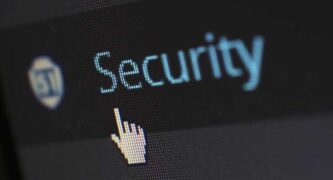 Internet Elections Ignite Fierce Debate In Netherlands (10/29/2022) - It is ill-advised to organize a political election via the Internet. That is the conclusion…
Internet Elections Ignite Fierce Debate In Netherlands (10/29/2022) - It is ill-advised to organize a political election via the Internet. That is the conclusion…  Only 1 In 4 Election Websites Uses The .gov Domain (10/20/2022) - We analyzed a dataset of election websites maintained by CTCL and found that, of the 7,010…
Only 1 In 4 Election Websites Uses The .gov Domain (10/20/2022) - We analyzed a dataset of election websites maintained by CTCL and found that, of the 7,010…  Support Builds For Portland Single Transferable Vote Initiative (10/13/2022) - Portland, Oregon voters will decide whether to pass an initiative for single transferable voting, a…
Support Builds For Portland Single Transferable Vote Initiative (10/13/2022) - Portland, Oregon voters will decide whether to pass an initiative for single transferable voting, a… 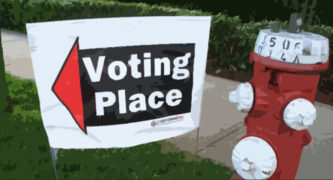 The Conservative Case For Proportional Representation (5/1/2022) - Washington Post columnist Henry Olsen calls on Congress to find a bipartisan accord to abolish…
The Conservative Case For Proportional Representation (5/1/2022) - Washington Post columnist Henry Olsen calls on Congress to find a bipartisan accord to abolish… 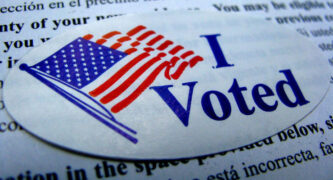 Congressional Bill for Proportional Representation Gains No Co-Sponsors (3/20/2022) - HB 3863 would convert most U.S. House elections to Single Transferable Vote system, and create…
Congressional Bill for Proportional Representation Gains No Co-Sponsors (3/20/2022) - HB 3863 would convert most U.S. House elections to Single Transferable Vote system, and create… 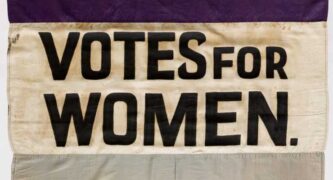 International Women’s Day and Proportional Representation (3/9/2022) - Highlighting how women around the world benefit from proportional representation because it encourages women to reach the…
International Women’s Day and Proportional Representation (3/9/2022) - Highlighting how women around the world benefit from proportional representation because it encourages women to reach the… 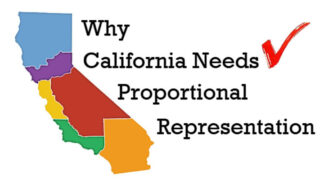 What If Everyday People Ran Los Angeles? (2/17/2022) - If the crisis in democracy had a capital, it would be Los Angeles. And if…
What If Everyday People Ran Los Angeles? (2/17/2022) - If the crisis in democracy had a capital, it would be Los Angeles. And if… 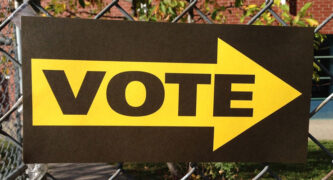 Proportional Representation Countries Have Better Voter Turnout (2/14/2022) - A new report shows that shows that countries that use proportional representation have higher voter…
Proportional Representation Countries Have Better Voter Turnout (2/14/2022) - A new report shows that shows that countries that use proportional representation have higher voter… 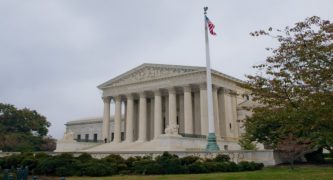 Costly Court Race Points To Future For Judicial Elections (3/30/2023) - Thirty million dollars and counting has poured into the campaign for a swing seat on…
Costly Court Race Points To Future For Judicial Elections (3/30/2023) - Thirty million dollars and counting has poured into the campaign for a swing seat on… 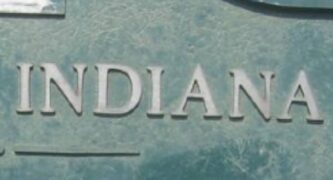 Indiana Voters Can Remove 60% Of The Supreme Court (3/30/2023) - The 2024 Indiana election could remove 60% of the state's justices, including Rush who's violated…
Indiana Voters Can Remove 60% Of The Supreme Court (3/30/2023) - The 2024 Indiana election could remove 60% of the state's justices, including Rush who's violated… 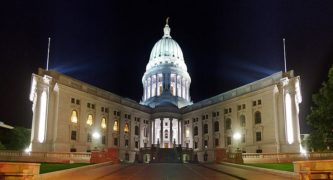 How Did State Supreme Court Races Get So Expensive? (3/17/2023) - Politicos have increasingly realized that state supreme court elections can be just as important as…
How Did State Supreme Court Races Get So Expensive? (3/17/2023) - Politicos have increasingly realized that state supreme court elections can be just as important as…  On Gerrymandering And Judicial Democracy (10/12/2022) - I am against gerrymandering and want to see every instance of it abolished so Americans…
On Gerrymandering And Judicial Democracy (10/12/2022) - I am against gerrymandering and want to see every instance of it abolished so Americans… 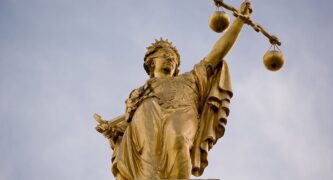 The Politics Of Judicial Elections (1/28/2022) - Special interests are spending more than ever on state high court races. This is not…
The Politics Of Judicial Elections (1/28/2022) - Special interests are spending more than ever on state high court races. This is not… 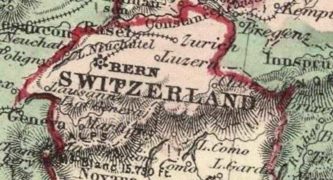 Reform Of Elections For Swiss Top Judges Thrown Out (11/30/2021) - A plan to elect supreme court judges by lot rather than by the Swiss parliament…
Reform Of Elections For Swiss Top Judges Thrown Out (11/30/2021) - A plan to elect supreme court judges by lot rather than by the Swiss parliament…